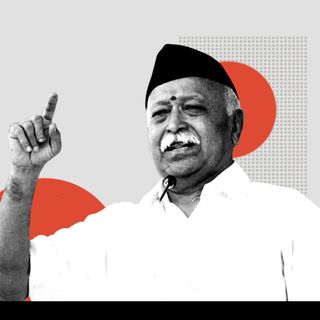
Seven Years After Rohith Vemula’s Death, Casteism in Universities Persists
This week, IIM Ahmedabad opposed caste-based reservations for PhD programs, claiming that it would be “injustice to other eligible meritorious students.”

“Maybe I was wrong, all the while, in understanding the world. In understanding love, pain, life, death… My birth is my fatal accident. I can never recover from my childhood loneliness. The unappreciated child from my past.”
Seven years ago, Rohith Vemula wrote these words in his final letter to the world. At the time of his death, Vemula was a 26-year-old PhD scholar at the University of Hyderabad. A Dalit and a member of the university’s Ambedkar Students’ Association (ASA), Vemula faced several institutional barriers during his time there. The university’s administration denied his stipend since July 2015, following a complaint by the local wing of the Akhil Bharatiya Vidyarthi Parishad (ABVP), a right-wing Hindu nationalist student outfit affiliated to the Rashtriya Swayamsevak Sangh (RSS). Then, it had suspended Vemula and four other students for “raising issues under the banner of the ASA.” His death by suicide is widely held to be an institutional murder: seven years later, Dalit and Bahujan students like Vemula continue to face hostilities in their pursuit of education in the country.
On Monday, the Indian Institute of Management, Ahmedabad opposed a petition seeking the institution of reservations in the admission process for the college’s PhD programs. The institute’s key argument against reservations was that it would be an injustice to “other eligible meritorious students.” Upper-caste ideas of merit continue to be reinforced by the country’s top institutes — thereby excluding marginalized students.
Related on The Swaddle:
All the Arguments You Need: to Advocate for Caste‑Based Reservations
“Allegations of caste discrimination in… “premier institutes,” are not new. In 2019, a member of the National Commission of Scheduled Castes (NCSC) said that employees and students from the SC and ST communities in IITM faced harassment and discrimination; IIT Madras had also failed to follow reservation norms in Ph.D. admissions and faculty recruitments,” The Swaddle noted earlier.
Although the Constitution of India makes provisions for reservations and affirmative action in educational institutions to ensure equality of opportunity, marginalized students often end up feeling alienated and unwelcome in such spaces. They are often subject to constant humiliation, deep scrutiny of their talent or worth, and jibes on reservations. “… the simplest, everyday practices of communication between the Savarna teachers and the Dalit students in the university space are often characterized with unrecognized power dynamic and prejudice; incidents that cannot be mapped easily,” wrote Drishadwati Bargi in Economic & Political Weekly.
Soon after his death, therefore, Vemula speaking about this subtle humiliation and exclusion turned him into a symbol of resistance that marginalized students assert against casteism across educational institutes in the country. In 2021, Deepa Mohanan, a scholar from Kerala’s Mahatma Gandhi University, went on a hunger strike protesting casteism – soon after, the individual named in her protest as blocking her access to a PhD was replaced. This represents a landmark win – but against the backdrop of shrinking space for affirmative action and justice, it shows how these victories continue to be few and far between.
Related on The Swaddle:
Why Deepa Mohanan Represents a Landmark Victory Against Institutional Casteism
In the last seven years, the government has actively pushed for greater privatization in higher education. This precludes equal access for marginalized students: unlike government institutes, privately owned colleges are not required to follow any reservation policies and moreover, are prohibitively expensive. This ultimately limits their access to affluent, mostly upper-caste, students.
Further, the state has steadily discontinued several scholarships, schemes, and grants meant to encourage students from scheduled castes, scheduled tribes, other backward classes, and minorities to pursue higher education. For some other schemes, the state has made minor changes that limit the scope of such scholarships.
Despite several other Dalit and Bahujan students protesting – and even dying from – institutional casteism in higher education, there remain few remedial measures to prevent it. This was brought to light even further when a professor from IIT Madras resigned over casteism – and specifically noted the lack of grievance redressal mechanisms within the institution to voice his concerns.
Many have thus advocated for legislation prohibiting caste discrimination in educational institutes – named the ‘Rohith Act.’ This hasn’t come to pass yet – but shows how institutional mechanisms to redress and alleviate casteism remain scarce, robbing many students of their dreams. As scholar Anand Teltumbde noted: “Rohith Vemula’s dream of becoming a science writer like his idol, Carl Sagan, ended abruptly at the altar of caste.” The situation, then, continues to persist in the seven years since Vemula’s death – but not without growing resistance.
Amlan Sarkar is a staff writer at TheSwaddle. He writes about the intersection between pop culture and politics. You can reach him on Instagram @amlansarkr.
Related


RSS Chief Endorses LGBTQ Rights. Here’s Why It Rings Hollow.
